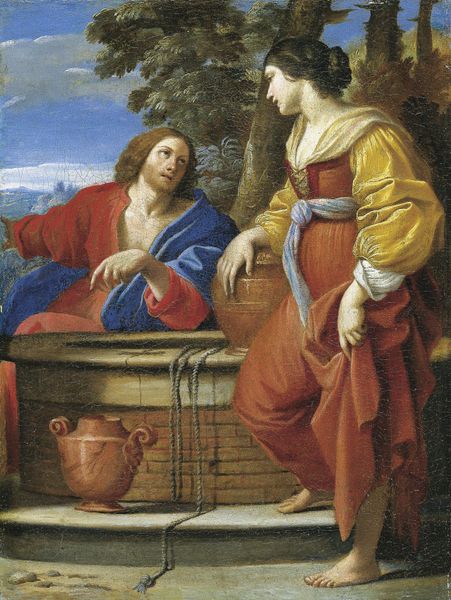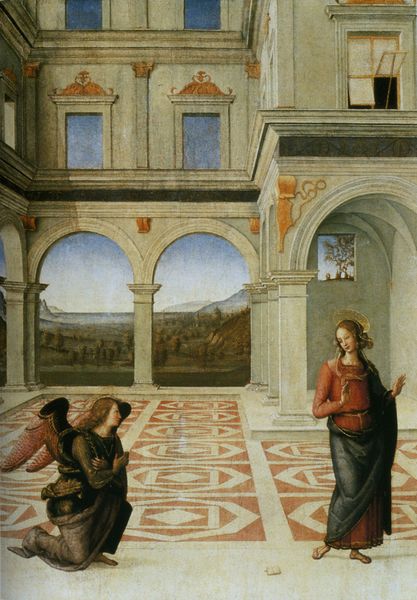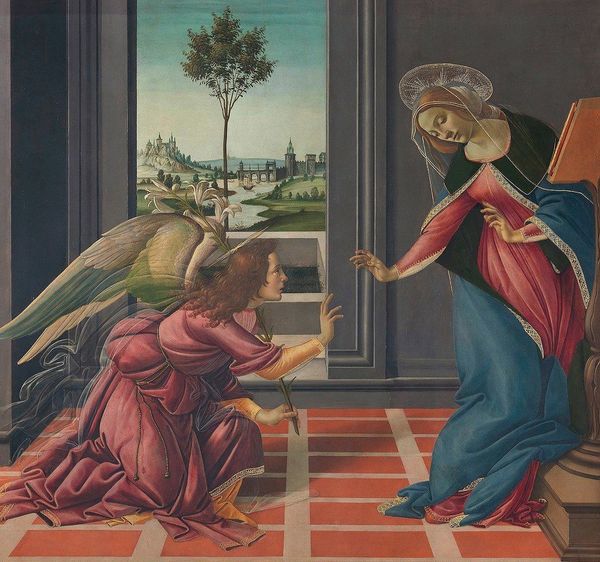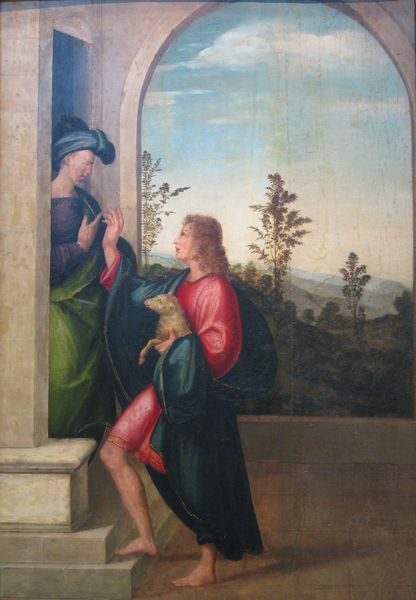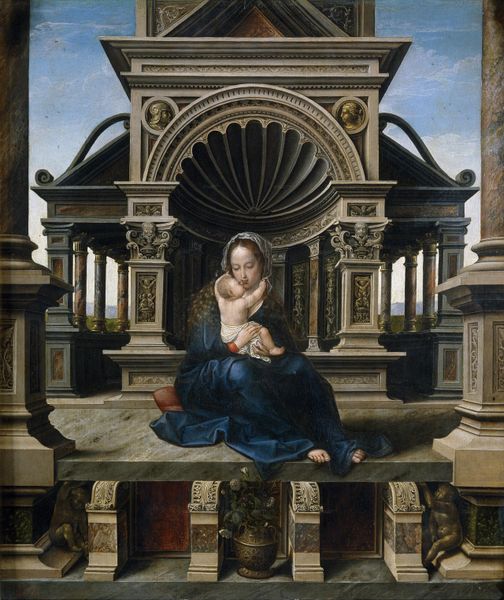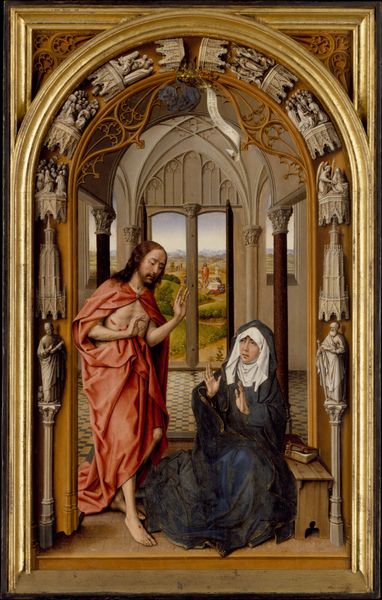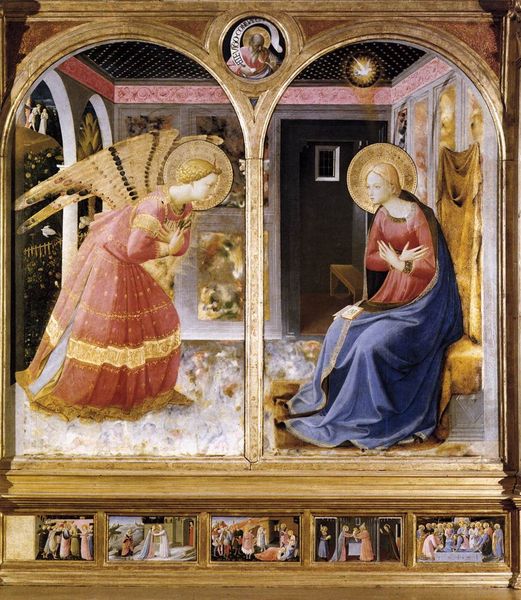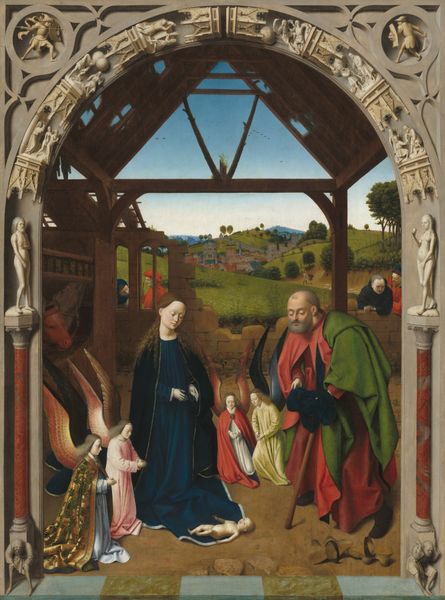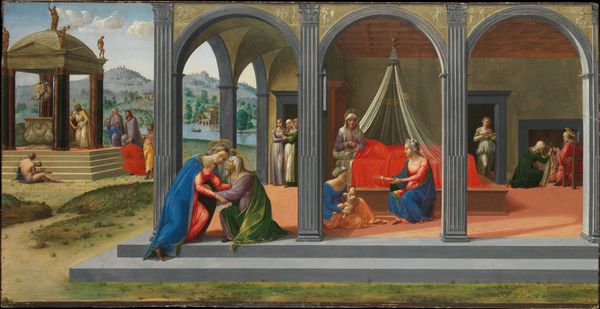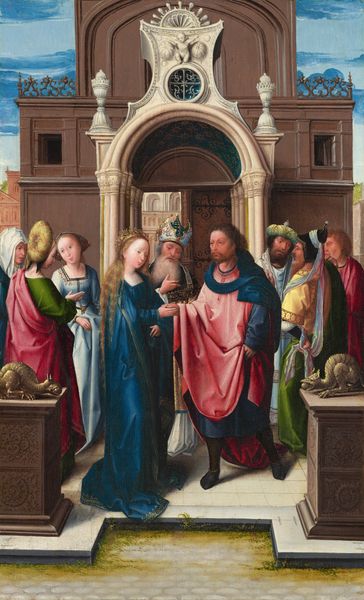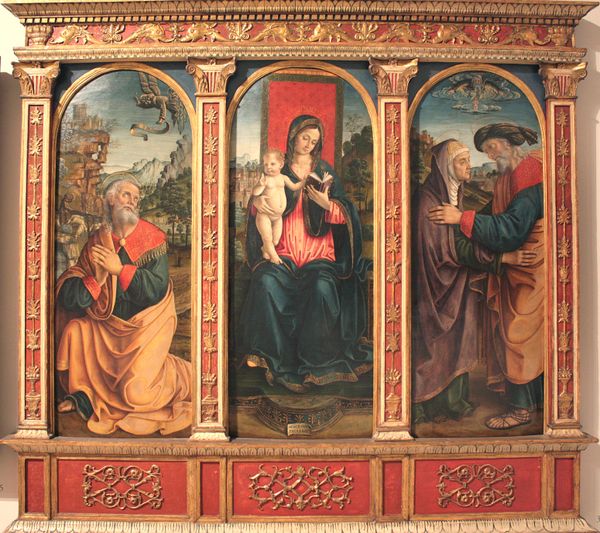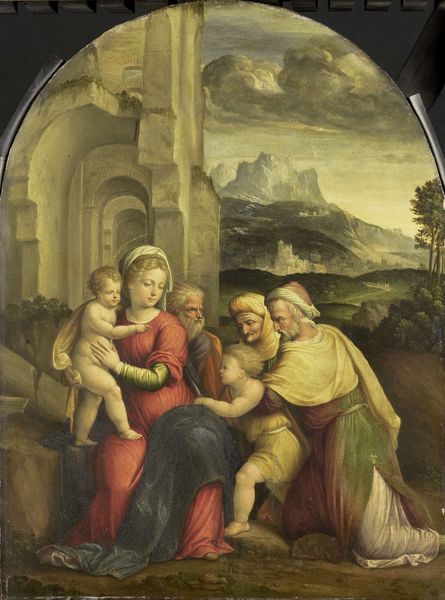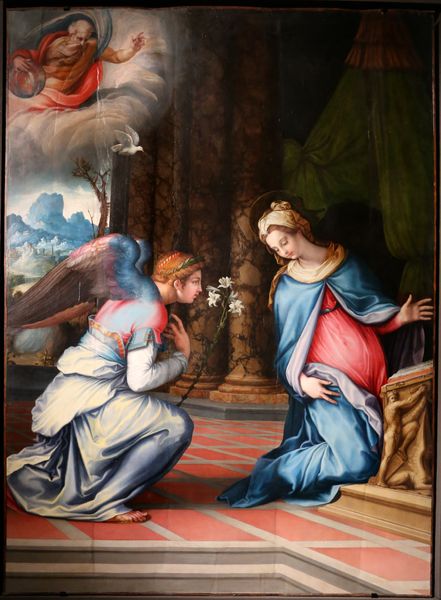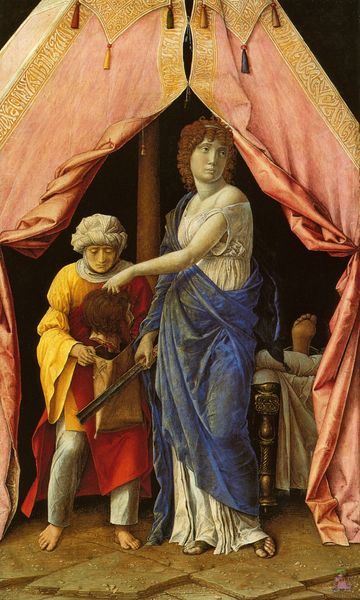
tempera, painting, oil-paint, fresco
#
narrative-art
#
tempera
#
painting
#
oil-paint
#
landscape
#
figuration
#
fresco
#
oil painting
#
christianity
#
history-painting
#
italian-renaissance
Copyright: Public domain
Pietro Perugino painted "The Annunciation of Mary," during the Italian Renaissance, a period marked by a renewed interest in classical antiquity. This artwork portrays the biblical scene where the angel Gabriel informs Mary that she will conceive and bear the son of God. Perugino situates Mary in a serene architectural space, reflecting the Renaissance ideals of order and harmony, yet this setting also highlights the limitations placed on women within religious narratives, emphasizing their roles as vessels of divine will. The presence of God the Father, attended by cherubs, reinforces the patriarchal structure inherent in the story, where Mary's agency is mediated through male figures. Despite the constraints of her role, Mary's poised acceptance conveys a sense of quiet strength, hinting at the profound implications of her consent. The emotional impact of the scene lies in its portrayal of Mary's transition from ordinary woman to a pivotal figure in Christian theology. The artwork invites reflection on the complex interplay between individual choice and predetermined destiny.
Comments
No comments
Be the first to comment and join the conversation on the ultimate creative platform.
